Kenyan Students Flock to Austria for Fully Funded Erasmus Mundus Programmes
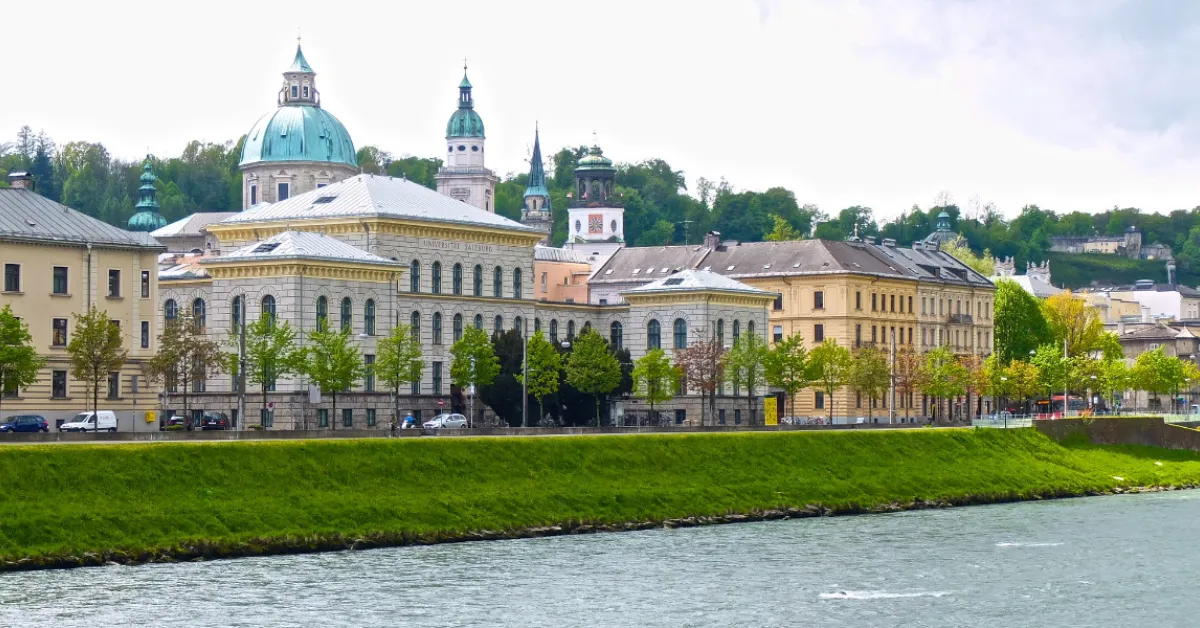
As more Kenyan students enrol in top European programmes, Austria is emerging as a key destination, offering world-class education and fully funded scholarships.
The Erasmus Mundus programme, which incorporates several Austrian universities, supported 23 Kenyan students in 2024 alone, reflecting a growing interest in studying in Austria. Between 2014 and 2020, 250 Kenyan students participated in Erasmus Mundus Joint Master's (EMJM) programmes across Europe, including Austria. Popular fields of study include aerospace, computer science, and data science. For instance, Graz University of Technology offers Space Tech Master’s scholarships.
Leila Maritim, 30, holds a Master’s in Digital Earth programme from the University of Salzburg. She currently resides in Salzburg, Austria. She graduated with a Master's degree from the University of Salzburg in July 2024, majoring in geo-data science. The Erasmus Mundus scholarship gave her an incredible opportunity to study in both Austria and France. She took her first year at the University of Salzburg as part of a multicultural group of international students.
The Erasmus programme is structured in such a way that students can shift to another university based on their area of specialisation, so she shifted to the University of South Brittany in France during her second year to further study geo-data science, while some of her colleagues specialising in geo-visualisation shifted to the Czech Republic. The entire programme lasted two years, spread across four semesters. Before that, she did a Bachelor's in Geomatics Engineering and Geospatial Information Science at Jomo Kenyatta University of Agriculture and Technology.
After graduating in 2018, she spent three years working in both public and private organisations, including West Kenya Sugar Company in Kakamega and UN-Habitat. She is proud of the impact her work has had back home. She always wanted to study in Europe because of the high number of scholarship opportunities available. Copernicus was her number one preference, and she was fortunate to be selected.
She had also applied to other opportunities in the Netherlands, Germany, and Spain. She was selected by the University of Twente in the Netherlands, but not with a scholarship. Everything worked well with the Copernicus programme. Applying was smooth, with plenty of information on the website. As soon as they were accepted, they received a lot of assistance, from visas and accommodation to residence permits. The most exciting part of this experience is the international environment.
Having individuals from all over the world surrounding them helped them settle in much more comfortably. They moved within the cities together, educated each other, and participated in cultural activities. She also met a welcoming and friendly Kenyan and African society within Austria that eased the homesickness. During festive periods, they would organise things like Christmas parties so that they would not feel left behind.
Cultural shock was real, especially the language barrier. She had not learned German before, so initially, she felt a bit out of place. Thankfully, the programme offered basic German courses, and these helped with everyday interactions like shopping or asking for directions. Her class was all in English, thankfully. After graduating, she started looking for jobs in Europe and globally, including in Kenya. The biggest challenge has been the language requirement because some of the jobs require better German proficiency.
She is now applying to global companies whose working language is English. Regarding the cost of living, she found Austria manageable. There is an extremely good social welfare system. For example, if you lose employment, the State will assist you until you stabilise. When she was a student, she lived in subsidised student housing, costing between Sh29,504 to Sh44,256 a month. Shared flats cost approximately Sh88,512, while studios cost between Sh88,512 and Sh132,768.
There is something for everyone based on your budget. Her main reason for venturing abroad was to widen her skill base and become more flexible in her field. She now considers herself a global citizen who is open to opportunities anywhere. The experience hardened her and made her more self-reliant. Living away from home taught her to handle adversity and emotions independently. She is now interested in how AI and art intersect, and she feels there's significant potential in harnessing these skills to create substantive solutions, particularly in Kenya.
Her dream is to grow as a specialist in this field, maybe one day becoming a product owner. Austria has many good universities and options, and she would certainly recommend it to other Kenyans. While Austria is as developed as it gets in terms of infrastructure, she knows that the education she received previously in Kenya prepared her to thrive in Austria. She is proud of her background and the foundation that it gave her.
Dennis Kamau, 28, holds a Master’s in Tourism Management and Innovation from Salzburg University. His journey in tourism started at Kenyatta University in Kenya, where he took a Bachelor of Arts course in Hospitality and Tourism Management and graduated in 2019. He did an internship at the Ministry of Tourism while pursuing the course. He also joined Ecotourism Kenya's Leadership and Mentorship Programme and became an ambassador for sustainable tourism development, a role he still holds today. These early experiences heightened his interest in tourism regulation and broader policy frameworks.
When Covid-19 came, he decided to go study abroad. As soon as borders reopened in 2021, he moved to Austria and studied a diploma in tourism management, then went ahead to pursue a self-sponsored Master's in tourism at Salzburg University of Applied Sciences where he graduated in 2024. He had to pay for his own accommodation, travel, and part of the course fees. The process of applying to study in Austria was surprisingly easy. Provided you have your documents and English proficiency, things will go well.
He always tells people not to put all their eggs in one basket when applying for opportunities. He applied to several places, and Austria was the first to reply. He took it. The learning process here is very practical and experiential, with plenty of group projects, discussions, presentations, and conference visits. He found this applied model to be more in-depth and useful in solving actual problems. During his time in school, he was selected as a student representative and board member of the One World Scholars programme, a platform for students passionate about sustainability, social justice, and governance.
Collaborating with other colleagues helped develop his intercultural ability and increased his sensitivity to global concerns even more. The biggest excitement for him was that his research paper was selected to be published at the International Student Conference on Tourism Research (ISCONTOUR) 2025, which is a global tourism research conference. It confirmed the notion that research can bring genuine transformation. To support himself, he worked as a tour organiser and customer care assistant at Europe's hiking and biking company from 2022 to 2024.
He also helped with product development for tourists interested in hiking and biking, two of Europe's most loved activities. Working while studying was challenging, and his social life had to take a backseat. But it taught him discipline, emotional maturity, and the need for a good structure. It was not simple getting accustomed to Austrian life. There was that initial thrill, taking photos, and enjoying the environment, but soon the culture shock and homesickness overwhelmed him.
He missed homemade food, and winters proved difficult to adjust to. He plans to go back to Kenya and collaborate with the government and the tourism industry stakeholders to develop and consolidate tourism policy and diversify Kenya's tourism products. He is also keen on youth empowerment and inclusive governance.
Ethel Ogallo, 29, is pursuing a Master’s in geo data science tracking, Paris London University of Salzburg. She moved to Austria in September 2024, and she is currently pursuing her Master’s degree as part of the Erasmus Mundus Joint Master’s programme funded by the European Union. She took a Bachelor of Applied Science in Geo-informatics at the Technical University of Kenya between 2013 and 2019. After graduation, she worked as an environmental officer, mostly in construction.
At the start of Covid, she started revisiting what she had learned during her undergrad studies, mainly programming and data-focused courses. It is then that she studied data science on her own and later got an internship at CEMA Africa (Center for Epidemiological Modeling and Analysis). She was later promoted to the role of Data Science Research, and she was working mainly on spatial statistics. Having colleagues who were pursuing higher studies inspired her to do the same.
Initially, she had wished to study at a university in the Netherlands, but she stumbled upon the Erasmus programme while exploring options. She found a course that perfectly combined data science and Geographic Information Systems, something that she had done in her field of work in public health. She was lucky to have mentors who guided her through the application process. In Europe, she immediately noticed how different the education system is, noting that the learning is specialised, and professors are within reach.

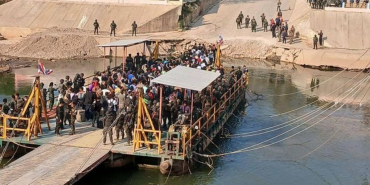
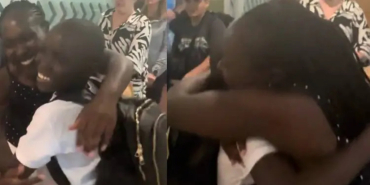

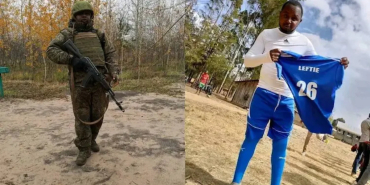


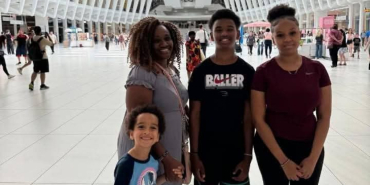
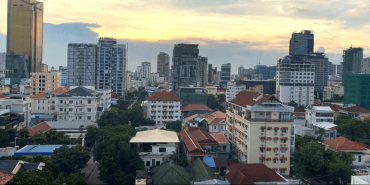
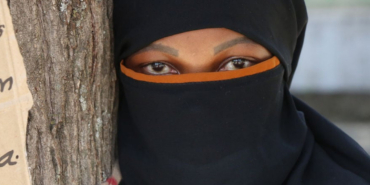


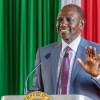

Add new comment